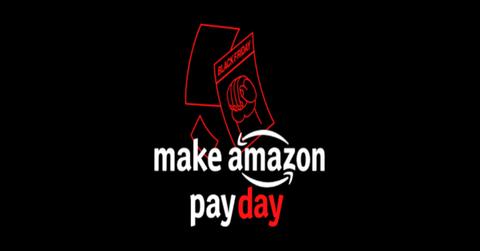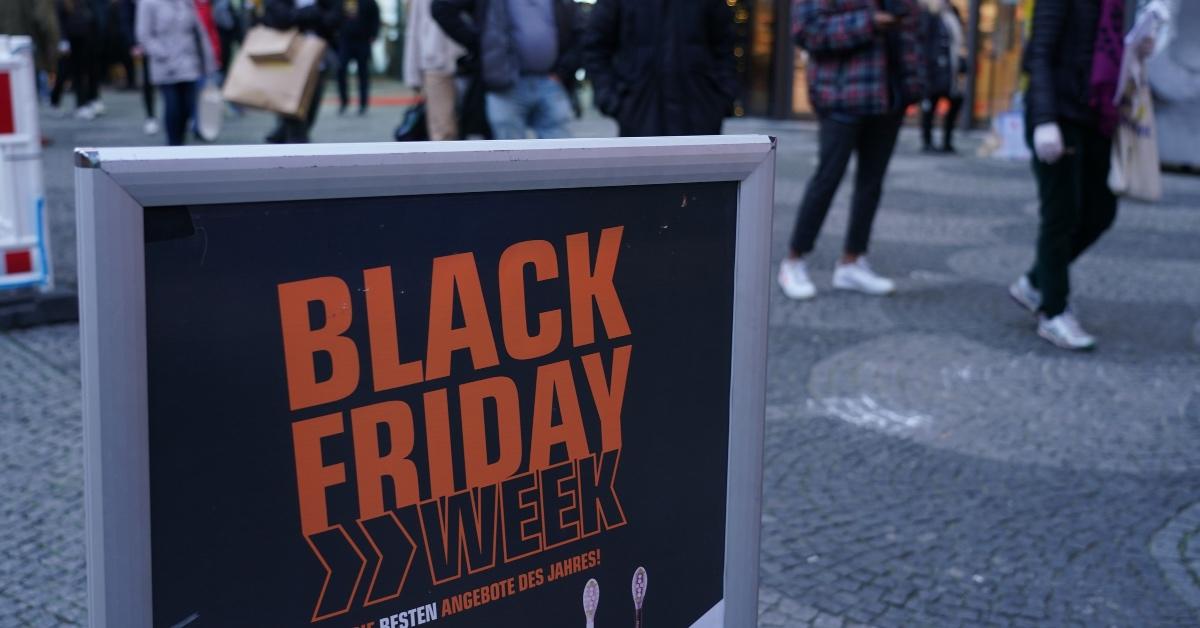Underpaid Amazon Workers Prepare for Black Friday Strike
Amazon workers are being led by a coalition called "Make Amazon Pay" to hold protests and strikes on Black Friday.
Nov. 22 2021, Published 2:31 p.m. ET

Most people recognize Amazon as being a leader in the e-commerce industry. The company provides consumers with access to some of the most sought out items. Amazon’s convenient pricing and shipping speeds have also helped the retailer gain support from consumers. While many view Amazon as their source for holiday shopping or to purchase newly released gadgets, others view the company in a much harsher light.
Amazon has been criticized on more than one occasion for its working conditions and the wages it provides its employees, particularly warehouse workers. Employees and activists are looking to stand against the retailer on a day when sales are expected to be at their highest—Black Friday. Why are Amazon workers protesting and could warehouse worker wages have anything to do with it?
“Make Amazon Pay” announces that protests and strikes will be held against Amazon on Black Friday.

Amazon employees and activists intend to hold strikes and protests alongside one another this Black Friday. They hope to send the message to the trillion-dollar e-commerce giant that working conditions must improve. “Make Amazon Pay,” which is a coalition comprised of unions and organizations from across the globe, will be organizing the global events that are scheduled to occur on Nov. 26.
“Make Amazon Pay” says the strikes and protests will involve workers from various positions including "oil refineries, factories, warehouses, data centres, and corporate offices.”
“Make Amazon Pay” has a specific list of demands.
In addition to announcing the global strikes and protests that are scheduled to be held on Black Friday, “Make Amazon Pay” published its "Common Demands." The coalition says that Amazon workers risked their lives to ensure demands for the COVID-19 pandemic were met and only received “a brief increase in pay.”
It also acknowledged the growth Amazon has made, although it wants the company to pay for the impact its operations have had on the planet and of course, taxes. The coalition expressed that Amazon wouldn't have made the recorded gains it has if it weren’t for “the public institutions that citizens built together over generations.”
It went on to accuse the trillion-dollar company of “starving” societies of “tax revenue through its world-beating efforts at tax dodging.” Amazon reportedly only paid 1.2 percent tax in 2019, which was only a slight increase from previous years.
The Black Friday protests being led by Amazon workers and activists are meant to shed light on Amazon’s lack of tax-paying and how the company “places profits ahead of workers, society, and our planet,” according to the coalition’s published list of demands.
The “Make Amazon Pay” coalition published dozens of demands.
The coalition has listed dozens of demands in its recent publication, some of which include:
Raising Amazon warehouse workers’ pay so that it stands “in line with the increasing wealth of the corporation, including hazard pay and premium pay for peak times.”
Putting to an end the “harsh productivity and surveillance regime Amazon has used to squeeze workers.”
- Sharing the protocol that is used to track and report COVID-19 cases.
- Ceasing “all forms of casual employment and bogus self-employment or contractor status.”
- Providing unions with the opportunity to access Amazon worksites “to inform workers on the benefits of unionization.”
How much do Amazon warehouse workers make?
According to Indeed, a platform designed to connect employers with job seekers and vice versa, Amazon warehouse workers make on average $16.30 an hour. In a review posted by an alleged Amazon warehouse associate, Amazon managers were accused of “taking advantage” of their workers.
Another reviewer said they felt like “a machine” while one rated the company with 1 out 5 stars, calling it the “worst job experience” they’ve ever had.
